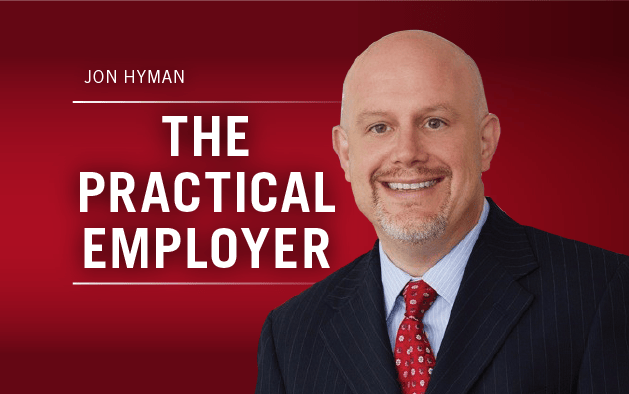Four former Google employees claim that their ex-employer fired them Thanksgiving week in retaliation for their efforts to organize a labor union.
The NLRB is now investigating the firings. For its part, Google denies that anti-union animus played any role in the firings. “We dismissed four individuals who were engaged in intentional and often repeated violations of our longstanding data security policies, including systematically accessing and disseminating other employees’ materials and work. No one has been dismissed for raising concerns or debating the company’s activities.”
The NLRB will ultimately have the final word. Suffice it to say, however, an employer cannot terminate a pro-union employee if the employer’s anti-union animus is a substantial or motivating factor for the termination.
But that’s just the tip of the iceberg of an employer’s prohibited conduct when confronted with union organizing.
And my use of the idiom “tip of the iceberg” is no coincidence, as T.I.P.S. is the acronym commonly associated with the four main categories of employer prohibited conduct in a union organizing campaign.
Threaten: Employers cannot threaten employees, or, worse, carry out those threats against employees, because they support unions or unionizing. For example, a manager cannot tell employees he will lower their wages or demote them if they support the union. Or, in the Google example, fire employees.
Interrogate: Employers cannot ask employees about their own, or other employees’, support of unions or unionizing. For example, management cannot ask employees if they signed a union authorization card or how they intend to vote.
Promise: Employers cannot promise employees some reward for not supporting a union. For example, management cannot offer raises or bonus if the union loses.
Surveil: Employers cannot spy on union activity. For example, management cannot photograph or video record union activities or eavesdrop on employee conversations.
And, if it’s not already clear (Google), you cannot fire employees because they support the union.
Yet, just because an employer cannot engage in T.I.P.S. does not mean that an employer is powerless to oppose and fight a labor union that is trying to organize its employees. Indeed, an employer has its own legal rights under the National Labor Relations Act to a fair and balanced secret-ballot election prior to the NLRB certifying a labor union as the bargaining representative for its employees. An employer that does not take advantage of these rights is omitting valuable information and a valuable opportunity to communicate its beliefs.
What can an employer communicate to its employees?
What are your values as an employer?
What are the benefits of working for your company? Wages, benefits, steady work, responsive management, etc.
Explain to employees what union authorization cards, how the secret-ballot election process works, and that just because an employee signed an authorization card does not bind that employee to vote for the union in a secret election.
Remind employees that just as you will not retaliate against any employee who is pro-union, you will not tolerate any employee who retaliates against a co-worker for being pro-management.
Explain the meaning of “dues checkoff,” and let employees know that union dues will almost certainly be deducted from their paychecks whether or not they support the union or use its services.
Inform employees of the potential disadvantages of labor unions, such as the possibility of strikes and work stoppages, that in the event of a strike you might hire replacement workers to take their jobs, that a collective bargaining agreement might require promotions and raises to be granted on seniority and not merit, and that employees might lose direct access to management to adjust issues in favor of a formal grievance and arbitration process.
Tell employees of your prior experience with labor unions, and any facts you know about the particular union that it trying to organize them.
Remind employees of the advantages of your benefits package, especially as compared to union fringe benefits that they might have to accept in lieu of your traditional benefits (which will still be offered to anyone outside of the bargaining unit).
Finally, you are always free to express your hope that employees vote against this or any union.
These issues can be nuanced, and if handled incorrectly, can expose an employer to significant liability at the NLRB. When in doubt, there are professionals you can hire (labor lawyers or other consultants that specialized in union avoidance campaigns). The bottom line, however, is that you cannot ignore a union organizing drive, because if the only viewpoint your employees hear is that of the union, it’s not hard to guess how the election will turn out.

